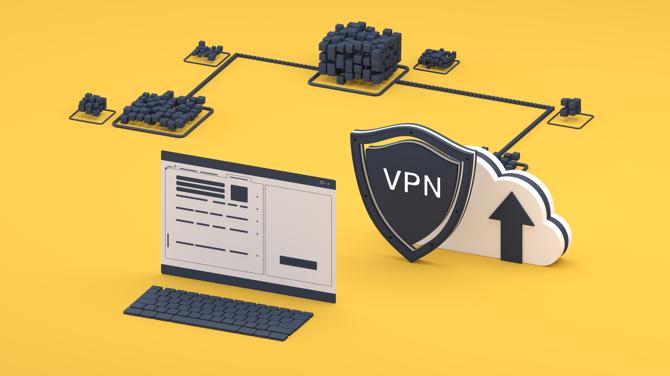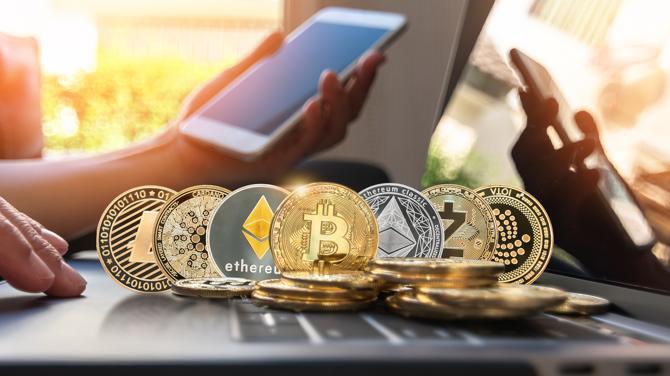Cryptocurrency and VPNs: Is Crypto VPN Necessary?

The existence of blockchains, cryptocurrencies, and other Web3 assets is only possible through data exchanges over the internet. While blockchain technology is supposed to be transparent and secure, there are some inherent flaws that leave it vulnerable to hackers. Because of this, it is advisable for anyone who owns digital assets to use a crypto VPN to keep their transactions secure and their information private.
What is Blockchain VPN?
Sometimes called crypto VPNs, blockchain VPNs are virtual private networks that are compatible with digital assets such as crypto coins, NFTs, and DeFi (Decentralized Finance) assets. For advanced crypto traders—or even those just taking their first steps into Web3—using VPNs for crypto adds an important layer of security. Because VPNs encrypt all traffic sent across their networks, it makes it much more challenging for malicious actors to hack into a crypto wallet and steal the assets contained within.
Why Do I Need a VPN for Crypto?
Although cryptocurrencies and blockchains technically offer secure transactions through cryptography, there are some inherent vulnerabilities within the system. One of the advantages of trading assets on blockchains is that all transactions are transparent and anonymous—users trade their assets through a wallet address, without any identifiable real-life details. However, the way blockchain technology operates means that these transactions are trackable and, therefore, vulnerable to hacking.
A few ways in which cybercriminals can hack into a crypto wallet include:
- Tracing the wallet’s address to the owner’s real IP address to find their location and identity.
- Hosting fake crypto trading competitions and stealing participants’ data.
- Installing malware on a user’s device which in turn installs a coin-mining software—this is called cryptojacking.
What are the Benefits of Crypto VPN?
There are many reasons why using VPN for crypto is useful for both beginner and advanced users. These benefits stem from the fact that VPNs redirect all of a user’s internet traffic through anonymous servers and shield any of the user’s identifying data. Here are a few of the main reasons to consider using a crypto VPN.
Open up the world of trading
Regulations around cryptocurrencies and other digital assets depend on local laws, and as such, these can differ greatly between different countries. Some countries, such as China, Nepal, and Ecuador, completely prohibit crypto trading. Others might simply block access to particular crypto exchanges—the US, for example, forbids trading on Binance. Even if crypto is legal, some exchanges offer a different selection of services based on a user’s location. However, because VPNs can redirect IP addresses to different locations, using VPNs for crypto means that it is possible to trade assets from wherever the user is located.
Encrypt Online Traffic
Although crypto trades are supposed to be anonymous—in theory, they are only linked to a crypto wallet address—the reality is that it is possible to trace crypto trades to IP addresses. This leaves users very vulnerable to hacking. But, because VPNs can encrypt all traffic—and mask a user’s real IP address—using a VPN for trading crypto offers a higher level of security to protect users’ assets.
Avoid Phishing Attacks
Phishing attacks—where hackers use fraudulent emails or phone calls from a trusted company to steal a user’s data, such as passwords or credit card information—are increasingly being used to target crypto wallets and steal digital assets.
Avoid Being Tracked by an ISP
Internet service providers (ISPs) can technically track and log all online traffic that goes through their systems. While ISPs might not be able to access every detail of a user’s crypto trading activities, they can, at the very least, see what exchange they access and how much data was used on the site. But, because VPNs for blockchain encrypt crypto trades and all other data, the only thing an ISP will see is the VPN server’s IP address. In addition, advanced crypto users may use a lot of data to execute trades, which could cause ISPs to throttle their connections. A crypto VPN masks where a user is spending their data and, therefore, cannot target high-volume crypto traders.
Bypass Firewalls
Frequent crypto traders may need to be able to manage their assets at any time and from any place. However, some institutions—such as companies and schools—may block any crypto sites, such as exchanges, with firewalls. VPN crypto trading means firewalls are no longer an issue—because VPNs mask a user’s IP address, they also bypass firewalls. As such, crypto traders can respond to the often-volatile crypto prices and protect their financial position.
How to Choose the Best VPN for Crypto Trading
A crypto VPN is a good investment for anyone involved with Web3, but it is especially important for high-level crypto users. But with so many VPNs available, how can users ensure they are using the best VPN for crypto? Here are a few things to consider:
- Strong encryption protocols (good VPNs use military-grade encryption such as AES-256)
- IP leak protection (look for phrases like IPv6 or DNS)
- Compatibility with cryptocurrencies and other digital assets
- Reliable customer support
- A kill switch (to disconnect the device from the internet if the VPN connection fails)
- A zero-logs policy (so that it doesn’t store data and, potentially, provide it to other entities)
- Split tunneling (to ensure the connection does not slow)
- A secure base country that prioritizes user privacy and does not engage in mass surveillance, such as Switzerland or Panama
- Obfuscation (this makes VPN traffic look like normal online activity)
When it comes to VPNs for crypto trading, it's important to keep in mind that the best options often require a subscription fee. Paid VPNs typically offer a higher level of service compared to free versions, which means they tend to provide enhanced security and reliability.
Features of Kaspersky VPN Secure Connection
While there are many crypto VPNs available, Kaspersky VPN Secure Connection comes with many features that make it one of the best VPNs for crypto trading. Here are some benefits to take note of:
- IP addresses are masked by premium super-fast servers offering speeds up to 10 Gbps.
- Access more than 2,000 servers across over 100 territories.
- Bank-grade 256-bit encryption to secure user data.
- Top-performing VPN in the market, proven by AV-TEST
- Kill switch will instantly cut your connection if your VPN accidentally drops, shielding you from unprotected internet and protecting data leaks outside of the encrypted tunnel. It also continuously monitors your connection to remote servers.
- No activity or history logs.
- Split tunneling—users can choose what data to encrypt through the VPN by selecting apps for protection and leaving others to use the internet directly.
- Latest and most powerful VPN protocols Catapult Hydra and Wireguard® allow you to enjoy ultra-reliable and convenient online experiences, via both local and overseas connections.
- Devices connected to home Wi-Fi are automatically protected.
Protect Digital Assets with Crypto VPN
No matter how many digital assets a crypto user may own or how often they execute transactions, anyone that deals with blockchains and cryptocurrencies can benefit from using a VPN for crypto. Virtual private networks offer an additional layer of security that assist crypto owners in protecting their assets from hacking, phishing, and even monitoring from other users and institutions. By encrypting data, rerouting traffic through servers located in different countries, and masking real IP addresses, blockchain VPNs offer extra security for anyone involved in Web3.
Frequently Asked Questions
What is VPN for Crypto?
Crypto VPNs are virtual private networks that assist Web3 users in protecting their cryptocurrencies, NFTs, and other digital assets. They encrypt internet traffic and mask sensitive user information, which makes it more difficult for cybercriminals to enact hacking and phishing attacks and steal a user’s digital assets.
Is VPN for Crypto Necessary?
Simply put, yes, using a VPN for crypto is necessary for anyone involved with Web3. These networks help patch over some of the vulnerabilities that are inherent in blockchain technology and limit the ability to track transactions and trace them back to individual users. Without a blockchain VPN, it is technically possible for hackers, internet service providers, and other entities to trace a crypto wallet’s address to a real IP address and user identity, steal data through phishing scams, and even mount cryptojacking attacks by installing malware on a user’s device that helps cybercriminals illegally mine coins.
Get Kaspersky Premium + 1 YEAR FREE Kaspersky Safe Kids. Kaspersky Premium received five AV-TEST awards for best protection, best performance, fastest VPN, approved parental control for Windows and best rating for parental control Android.
Related Articles and Links:
What is VPN? How it Works, Types of VPN
VPN vs Proxy Server: What’s the Difference, and which should you be using?
How a VPN Can Help Hide Your Search History and is Private Browsing Really Secure?
Related Products and Services:
Cryptocurrency and VPNs: Is Crypto VPN Necessary?
Kaspersky
We use cookies to make your experience of our websites better. By using and further navigating this website you accept this. Detailed information about the use of cookies on this website is available by clicking on more information.






